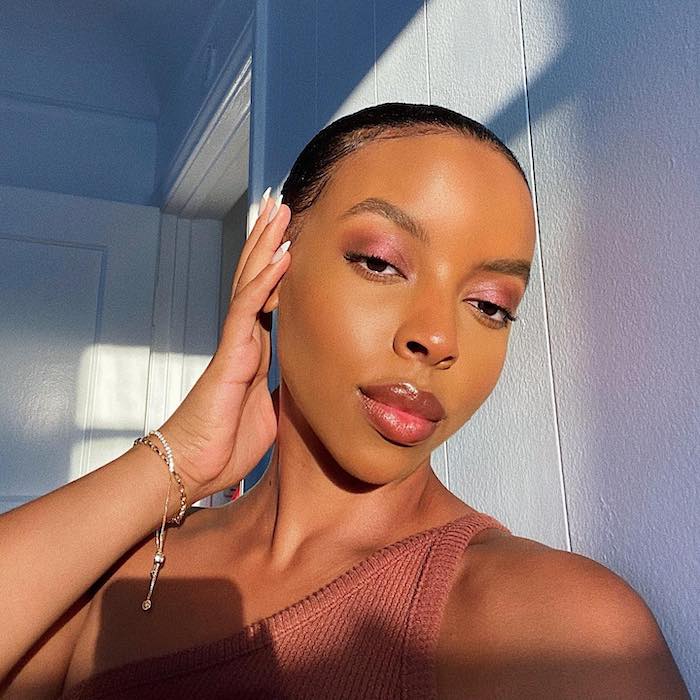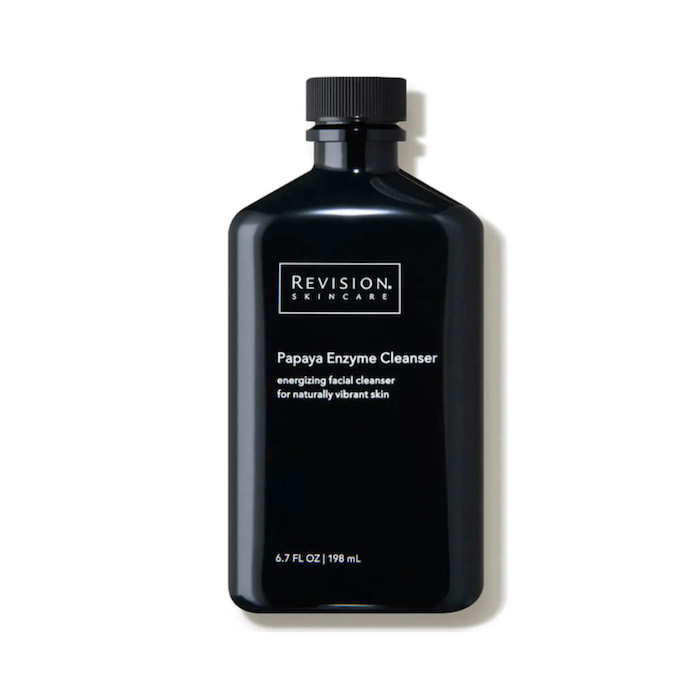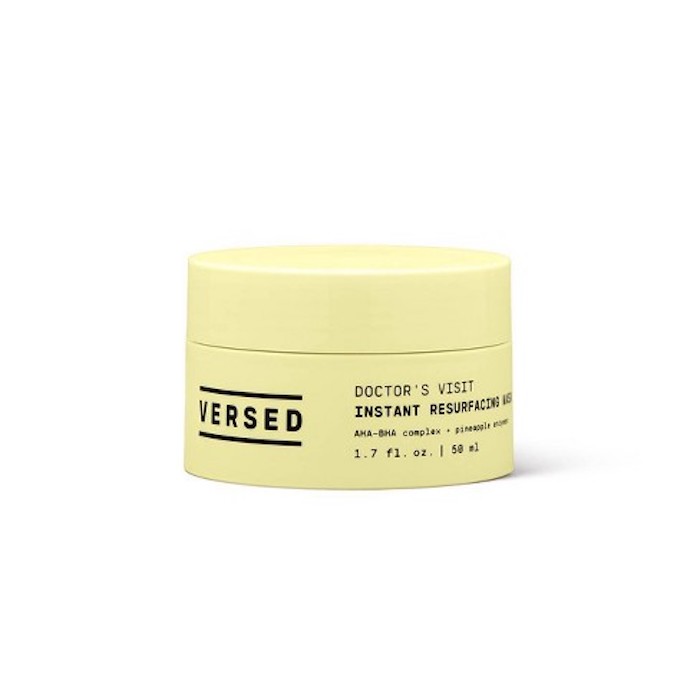

According to board-certified dermatologist Joel L. Cohen, "it's important that acne-prone people pick their sunscreens carefully and specifically focus on noncomedogenic-labeled sunscreens. Other types of sunscreen often contain oily products to help camouflage the scent of sunscreen, and we know that many of these oils can actually flare acne."
Ellen Marmur, board-certified dermatologist and founder of MMSkincare, agrees that the right sunscreen can make a world of difference. She recommends choosing "well-made sunscreens with great protection from minerals that are easy to cleanse."

Marmur likes this sunscreen, which is also a Who What Wear office favorite. It's virtually invisible on the skin, feels almost weightless, and grips makeup like a primer does.

For face sunscreen, Cohen recommends this cult-favorite SPF from EltaMD. It's lightweight and oil-free, so it won't clog pores even for people with an acne-prone skin type.

When it comes to body sunscreen, this one is the clear winner for Cohen. It's a water-resistant, reef-safe sunscreen that provides broad-spectrum SPF 30 protection. Plus, it's super easy to spray over your limbs when it comes time to reapply. (We're all about poolside convenience.)

"This is one of my go-to recommendations for all skin types," Hartman says. "It's a lightweight emulsion that delivers moisture and mineral zinc oxide for a chemical-free, physical sunscreen that eliminates the possibility of allergy."

The next derm-approved tip for preventing clogged pores is to incorporate salicylic acid (a beta-hydroxy acid) into your skincare routine. This one comes from Cohen, who says, "I have my acne-prone patients try to use a salicylic acid cleanser at least a few times a day, which is definitely easier to tolerate in the summer months or warmer climates (than the dry winter climates)."
If one of his patients is struggling with a lot of visible blackheads or whiteheads, Cohen will also recommend specific microdermabrasion treatments, like DiamondGlow or DermaSweep. They can "be really helpful" in the fight against clogged pores.

Cohen recommends this cleanser, which contains salicylic acid, along with papaya enzymes, to gently exfoliate the skin and slough away pore-clogging dead skin cells.

This budget-friendly cleanser contains salicylic acid, zinc and allantoin to clear and prevent clogged pores while reducing the potential for dryness and irritation.

"Topical retinoids can and should be used year-round for acne-prone skin," Cohen says. "In summer weather, dryness with these retinoids is less of a problem than in the winter climates—but still, many people complain of dryness and irritation from retinoids."
To avoid dryness and flaky skin, he recommends using a gentle retinoid serum alongside a skin-soothing cream, like the Sente Dermal Repair Cream Ultra Nourish ($179). It contains a unique molecule that helps "enhance the skin barrier, decrease irritation and redness, yet also penetrates the skin to regulate homeostasis."

Cohen recommends this as a year-round retinoid, "as it has a high protein content and technology that prevents irritation and dryness."

This retinol serum targets enlarged pores, wrinkles, dullness, discoloration, and texture issues. It uses 1% retinol along with tranexamic acid and peptides to provide visible improvements over time.

This might sound obvious, but it bears mentioning since many people cleanse their skin only once per day. According to Marmur, a twice-a-day cleanse is one of the easiest ways to prevent clogged pores, as it rinses off sweat, salt, and other potentially pore-clogging impurities.
At night, she recommends switching to an oil cleanser if you haven't already. These kinds of cleansers effectively break down and remove stubborn sweat, makeup, and sunscreen.


We like this oil-based cleanser from Peach & Lily. It removes sunscreen, sweat, and makeup in seconds, and once it washes away, there's no residue. Plus, it contains antioxidant-rich ginger, clarifying pineapple and papaya, and soothing sunflower-seed and grape-seed oils.

If you want to double-cleanse and follow up with a water-based formula, try this one, which is recommended by Hartman. "This cleanser removes dirt, oil, and makeup without stripping the skin’s natural moisture, making it suitable for all skin types."

"Exfoliate your face one to two times weekly with a chemical exfoliant, either an alpha hydroxy acid (AHA) or a beta hydroxy acid (BHA)," Hartman says. This will help keep pores clear since the more sweat, sunscreen, makeup, and dead skin cells you have on your skin, the more likely you are to develop clogged pores and subsequent breakouts.

"This is a great product to incorporate into your weekly skincare routine," Hartman says. "The BHA is salicylic acid, which is tolerated well by most people and 2% is gentle enough that it won’t irritate the skin. Start using it one to two times per week, and if your skin tolerates it well, you can bump it up to two to four times weekly."

This resurfacing mask is a Who What Wear team favorite. It contains AHA, BHA, and enzymes, so it's basically a triple threat of exfoliation. It never fails to leave our skin bright, smooth, and clear.
Next, these acne spot treatments are the real deal.
from Who What Wear https://ift.tt/etJqDA6
No comments:
Post a Comment